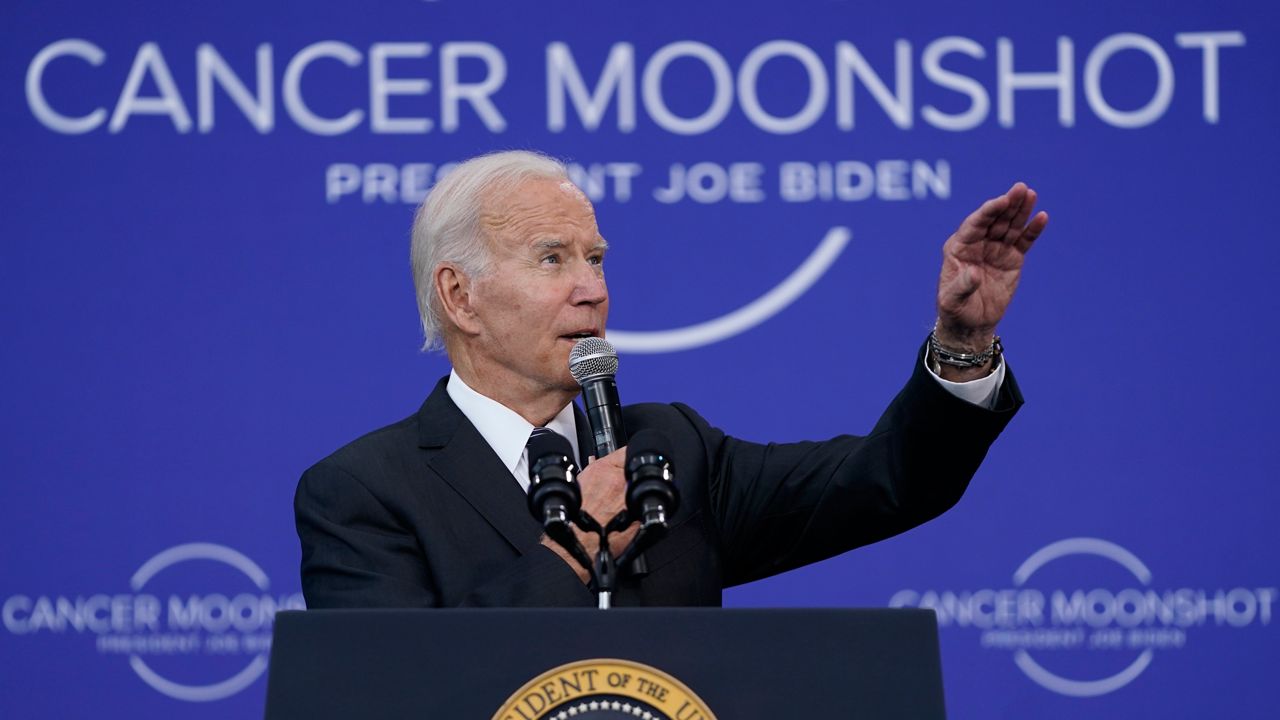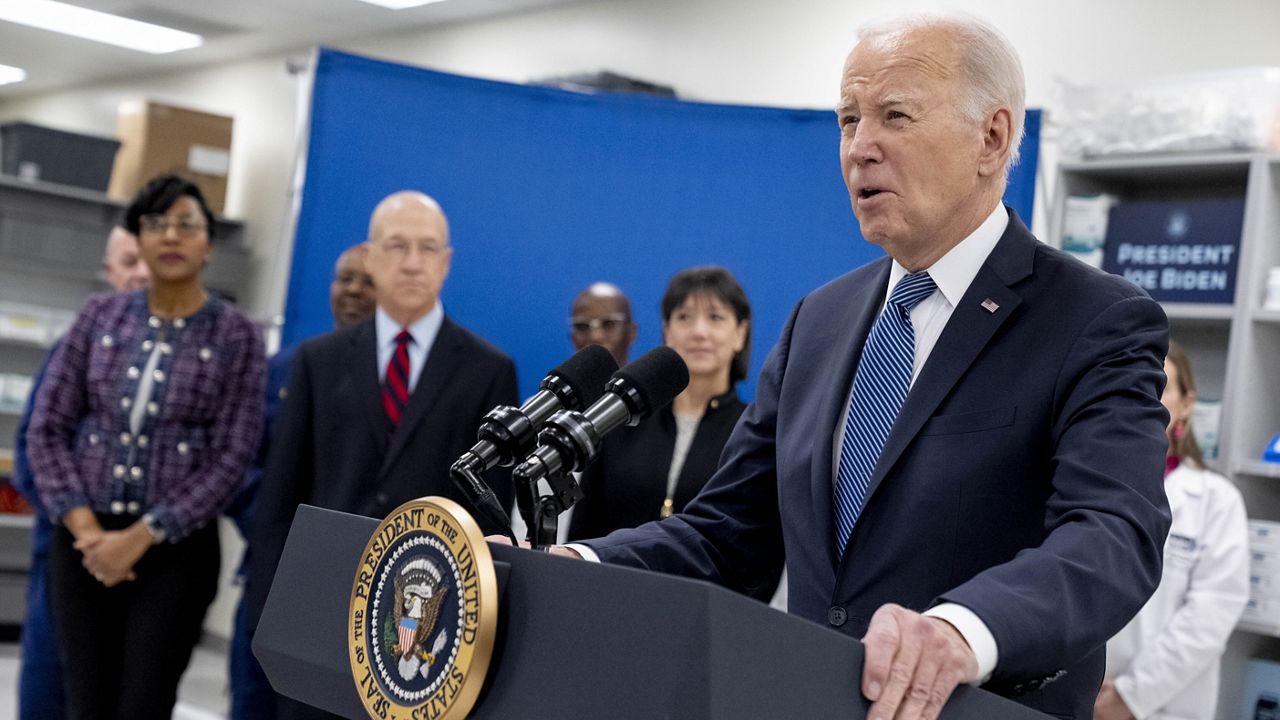The Biden-Harris administration is launching a program to develop new technologies for removing cancerous tumors with better precision and accuracy, the White House announced Thursday.
The program is the first of its kind for the Advanced Research Projects Agency for Health (ARPA-H) that President Joe Biden established with Congress last year to develop breakthroughs in cancer and disease prevention, detection and treatment.
Last year, Congress invested $2.5 billion in ARPA-H, a portion of which will fund the new cancer research initiative. Part of the Biden Cancer Moonshot that launched in 2016 to accelerate progress against cancer when Biden was vice president, the moonshot’s goal is to cut the U.S. cancer death rate in half, preventing more than 4 million cancer deaths over the next 24 years.
"Today, ARPA-H is delivering on that goal with its first program directly funding innovation in the treatment of cancer," Biden said in a release, hailing that "we’re marking a major milestone in the fight to end cancer as we know it."
Surgery is frequently the first treatment option for the 2 million Americans who are diagnosed with cancer annually. ARPA-H’s Precision Surgical Interventions program seeks to decrease repeat surgeries, difficult recoveries and cancer recurrence while reducing health care costs.
"Despite many innovations in treating cancer, surgery is often the first best step," Biden said in a statement after noting the difficulty of such procedures. "Researchers and innovators across the country are pioneering new techniques and technologies to make cancer removal surgeries more precise, accurate, and achievable. It’s an exciting horizon in cancer research and development that could save and extend many lives. Now, through ARPA-H, we will fund promising new approaches to removing cancer surgically."
The program is working to develop technologies that can help surgeons spot and avoid the nerves, blood vessels and lymph nodes that can be damaged during surgeries. ARPA-H is soliciting proposals and will issue monetary awards for solutions to the problem of cancer localization. Interested research teams can submit their ideas as part of a Proposers Day in Chicago, Ill., on Sept. 7.
"Harnessing the power of innovation is essential to achieving our ambitious goal of turning more cancers from death sentences to treatable diseases and – in time – cutting the cancer death rate in half," the president said. "As we’ve seen throughout our history, from developing vaccines to sequencing the genome, when the U.S. government invests in innovation, we can achieve breakthroughs that would otherwise be impossible, and save lives on a vast scale. ARPA-H follows in that tradition of bold, urgent innovation."
To help achieve the Biden Cancer Moonshot’s goal, the administration also announced on Thursday a pair of prevention initiatives it is taking with the Department of Veterans Affairs.
Veterans who were exposed to burn pits and toxins while serving in the U.S. military are now eligible for breast cancer risk assessments and mammograms through the VA. The VA will also begin a scientific review of the relationship between acute leukemias, chronic leukemias and multiple myeloma that might be the result of toxic exposures for some service members.
"Cancer has touched nearly every family in America, including ours," Biden said. "That’s why [first lady] Jill [Biden] and I believe so deeply in the Cancer Moonshot, which will be transformational for people across the country and around the world."
"Together, we are also moving toward a world where cancer loses its power," he added. "That’s a goal worthy of our great nation."








